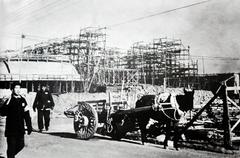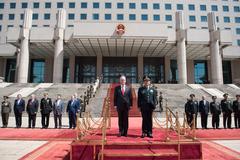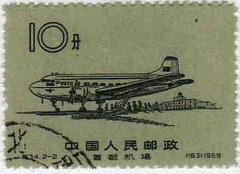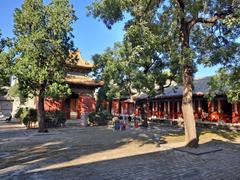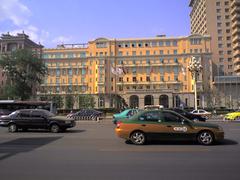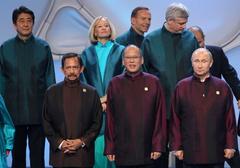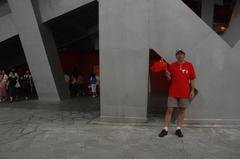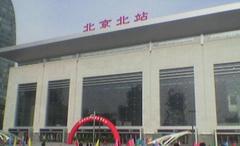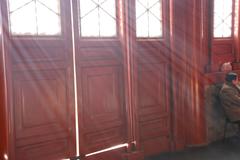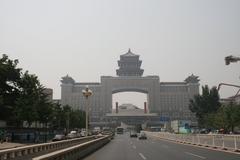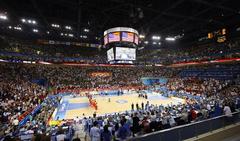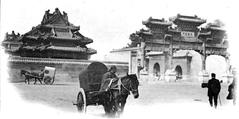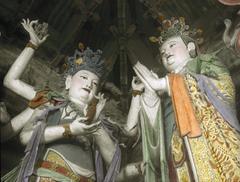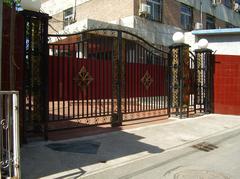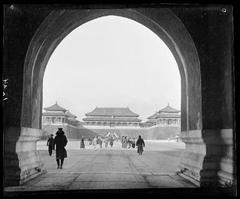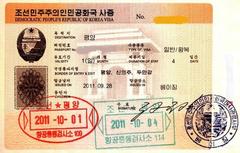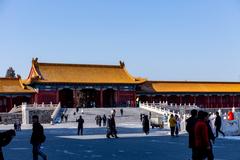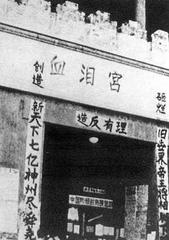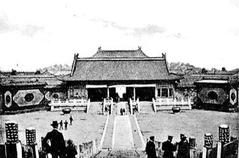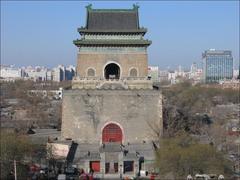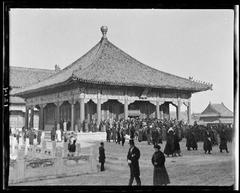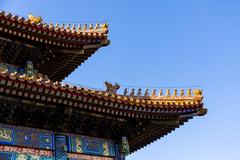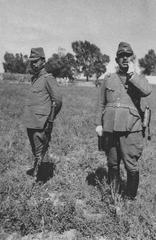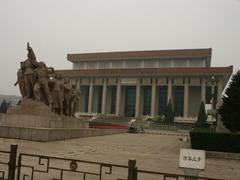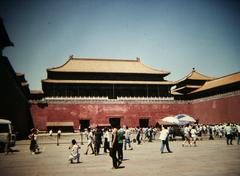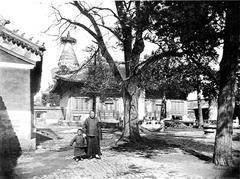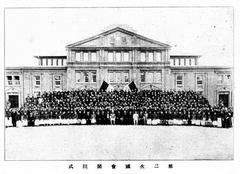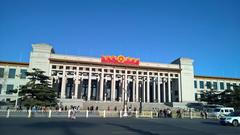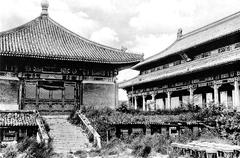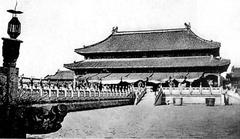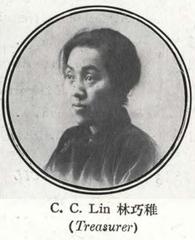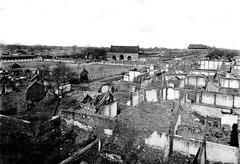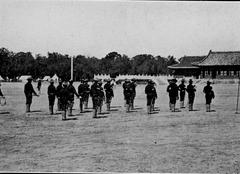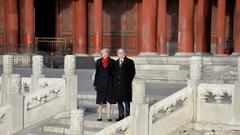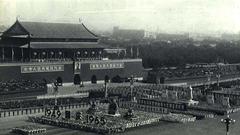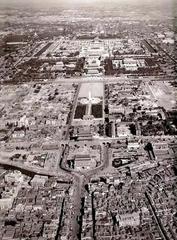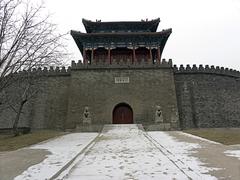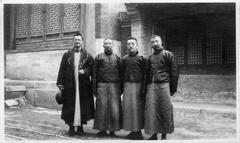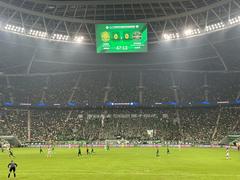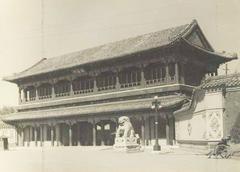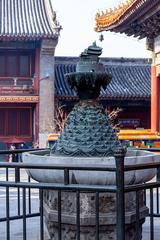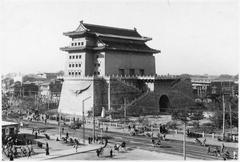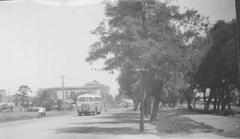Wenquan Beijing Visiting Hours, Tickets, and Historical Sites Guide
Date: 04/07/2025
Introduction to Wenquan Beijing and Its Significance
Located on the northwestern edge of Beijing’s Haidian District, Wenquan (温泉)—meaning “hot spring”—is a renowned destination celebrated for its natural geothermal springs and deep imperial legacy. With roots extending back to the Liao and Jin dynasties, Wenquan has long attracted emperors and elites, who built lavish bathing complexes and palace retreats here, making it a symbol of wellness, luxury, and cultural sophistication. Today, Wenquan offers visitors a seamless blend of ancient tradition and modern wellness, providing experiences that range from historical exploration and therapeutic bathing to vibrant local culture.
This comprehensive guide will help you discover Wenquan’s visiting hours, ticketing options, accessibility, cultural highlights, travel tips, and nearby attractions—ensuring you make the most of your visit to this premier Beijing hot spring destination. For further details, see sources like chinatripedia.com, chinawiki.net, and rachelmeetschina.com.
Table of Contents
- Welcome to Wenquan, Beijing: A Premier Hot Spring Destination
- Historical Evolution of Wenquan, Beijing
- Visiting Wenquan: Practical Information
- Cultural Significance of Wenquan
- Notable Sites and Heritage Features
- Wenquan’s Role in Tourism and the Cultural Economy
- Frequently Asked Questions (FAQ)
- Plan Your Visit and Explore More
Welcome to Wenquan, Beijing: A Premier Hot Spring Destination
Wenquan, located in the serene northwest outskirts of Haidian District, stands out for its geothermal springs and centuries-old imperial history. This guide offers a complete overview of Wenquan—covering practical travel tips, visiting information, cultural and historical highlights, and more. Whether you’re a history buff, wellness enthusiast, or cultural explorer, Wenquan delivers a distinctive blend of tradition and contemporary comfort.
Historical Evolution of Wenquan, Beijing
Ancient Origins and Imperial Patronage
The geothermal springs of Wenquan have been celebrated for over a thousand years, with written records dating to the Liao (907–1125) and Jin (1115–1234) dynasties. Successive rulers, notably during the Yuan, Ming, and Qing dynasties, established palace retreats and elaborate bathing complexes here. These hot springs were prized for their therapeutic and leisurely qualities, paralleling the famed Huaqing Hot Springs near Xi’an (chinatripedia.com).
Wenquan’s Role in Beijing’s Urban and Cultural Landscape
Beyond serving as a retreat, Wenquan became a center for elite discourse, poetry, and artistic inspiration. The springs symbolized health and longevity, with imperial physicians advocating their use for wellness. Today, Wenquan contributes to Beijing’s rich tapestry of over 7,300 cultural sites and 99 nationally protected relics (thechinajourney.com).
Transformation in the Modern Era
After the Qing Dynasty, some original structures were lost or repurposed, but the springs remained a popular draw. Today, modern bathhouses and wellness resorts serve a broad audience while benefiting from Beijing’s cultural preservation and tourism initiatives (wb.beijing.gov.cn; travelandtourworld.com).
Visiting Wenquan: Practical Information
Visiting Hours
Most hot spring resorts and historical sites in Wenquan are open daily from 8:00 AM to 8:00 PM, though hours may extend or adjust seasonally and by facility. Always confirm with your chosen resort or site before your visit.
Tickets and Admission
Admission fees range between 50–150 RMB for entry to hot spring baths and gardens, with some higher-end resorts charging up to 400 RMB for packages that include spa treatments and traditional therapies. Tickets can be purchased online or at entrances, and advance booking is recommended during holidays and peak seasons.
Accessibility and Transportation
Wenquan is about 40–50 minutes from central Beijing by taxi or private car. Public buses also serve the area. Major resorts and heritage sites are wheelchair accessible, with ramps and elevators available.
Special Events and Guided Tours
Cultural festivals, wellness retreats, and seasonal events (such as spring blossom and autumn foliage tours) take place throughout the year. Multilingual guided tours provide historical context and access to notable structures and gardens.
Recommended Photographic Spots
Top spots include classical stone bathhouses, imperial-style gardens, and scenic views of the springs amidst lush landscapes. Early morning and late afternoon offer ideal lighting for photography.
Cultural Significance of Wenquan
Imperial Wellness Traditions
Wenquan epitomizes the harmony of nature, wellness, and imperial culture. The springs were used for bathing rituals, poetry gatherings, and artistic cultivation, deeply rooted in philosophies of longevity. Modern resorts honor this legacy through classical architecture and landscaping.
Integration with Heritage Preservation
Wenquan benefits from Beijing’s heritage conservation projects, international promotion, and educational initiatives aligned with China’s broader tourism and cultural innovation strategies (isprs-archives.copernicus.org; travelandtourworld.com).
Wenquan in Contemporary Beijing
Today, Wenquan is a vibrant center for traditional festivals, wellness activities, and cultural events, drawing both local and international visitors.
Notable Sites and Heritage Features
Surviving Imperial Structures and Gardens
Restored pavilions, stone bridges, and ornamental ponds reflect Ming and Qing architectural styles. Classical bathhouses and imperial gardens exemplify Chinese garden principles and are must-sees for visitors.
Modern Wellness Resorts
Modern resorts blend historical motifs with contemporary spa facilities, offering mineral baths, traditional Chinese medicine therapies, and sustainable practices that respect Wenquan’s heritage.
Wenquan’s Role in Tourism and the Cultural Economy
Contribution to Tourism
Wenquan attracts a broad range of visitors, contributing to Beijing’s tourism sector, which welcomed over 260 million visitors and generated 416 billion RMB in revenue in 2021 (thechinajourney.com). Efforts to diversify offerings and improve infrastructure underscore its strategic importance.
Preservation and Sustainable Development
Authorities prioritize conservation through restoration, natural resource protection, and sustainable tourism initiatives, making Wenquan a model for heritage preservation and economic development (travelandtourworld.com).
Frequently Asked Questions (FAQ)
Q: What are Wenquan’s visiting hours?
A: Most hot spring resorts and historical sites are open from 8:00 AM to 8:00 PM, but hours may vary.
Q: How do I buy tickets?
A: Tickets are available online, at the entrance, or through major platforms like Meituan and Dianping. Prices typically range from 50 to 400 RMB.
Q: Is Wenquan accessible for people with disabilities?
A: Yes, major sites and resorts offer wheelchair access and amenities.
Q: Are guided tours available?
A: Yes, multilingual guided tours can be arranged through resorts or local operators.
Q: What is the best time to visit?
A: Spring and autumn are ideal for weather and events; winter also offers a unique hot spring experience.
Plan Your Visit and Explore More
Experience the unique confluence of history, culture, and wellness at Wenquan, Beijing’s premier hot spring destination. For detailed maps, up-to-date information, and special offers, visit the official Wenquan tourism website or download the Audiala app. Explore related guides on Beijing’s heritage and attractions to enrich your journey.
Note: Images are illustrative; please refer to official sources for licensed media.
Wenquan Town Hot Springs and Wellness Experiences
Overview
Wenquan Town, situated at the northern foot of Xishan Mountain, is lauded for its geothermal resources, dating back to the Ming Dynasty. The mineral-rich springs offer tranquil wellness experiences distinct from more commercialized urban resorts (chinawiki.net).
Hot Spring Parks and Ticketing
Main hot spring parks operate daily, typically from 8:00 AM to 10:00 PM. Tickets cost 80–150 RMB, and can be purchased online via platforms such as Meituan and Dianping, with frequent discounts (thebeijinger.com). Spa packages and TCM treatments are available by request.
Traditional Bathing Culture
The springs are social hubs for both locals and visitors. Showering before entering pools and maintaining a quiet atmosphere is customary. Facilities provide changing rooms, lockers, and on-site dining.
Historical and Cultural Landmarks
Luanzhou Uprising Memorial Tower
Commemorating the 1911 Revolution martyrs, the Luanzhou Uprising Memorial Tower is open from 9:00 AM to 5:00 PM daily, with free admission and wheelchair accessibility (chinawiki.net).
Protected Cultural Relics
Wenquan Town contains two municipal-level protected sites, typically open to the public. Check locally or with the Haidian District cultural office for details.
Natural Scenery and Outdoor Activities
Xishan Mountain and Parks
The area’s elevated, verdant terrain is ideal for hiking and nature walks. Yunling 18 Plate Wind Paradise is open 7:00 AM to 7:00 PM daily, offering serene trails.
Parks and Green Spaces
Traditional Chinese landscapes provide excellent settings for picnics and family activities, complementing the hot springs’ relaxation.
Local Villages and Community Life
Traditional Villages
Explore seven main villages—Gaolizhang, Baijiatuan, Dongbutou, Yangjiazhuang, Taizhouwu, Wenquan, and Xinzhuang—for traditional architecture and seasonal festivals.
Community Events
Frequent markets offer local produce and crafts, enhancing Wenquan’s vibrant blend of urban and rural lifestyles.
Practical Visitor Information
Transportation
Wenquan Town is 30–45 minutes by taxi from central Beijing, with bus routes and ride-hailing services available. Hot spring resorts and sites are wheelchair accessible.
Facilities and Services
Expect restrooms, showers, dining, and locker rooms. English signage is rare—translation apps or local guides are helpful. Mobile payments via WeChat Pay and Alipay are standard; some places accept cash or international cards.
Health and Safety
Wenquan Town upholds high hygiene and water quality standards. Visitors with sensitivities should consult staff before using the pools.
Best Times to Visit
The springs are most popular (and atmospheric) from November to March. Weekdays, early mornings, and late evenings are less crowded.
Wenquan Hot Springs in Haidian District: A Complete Travel Guide
Essentials
Located in Beijing’s Haidian District, Wenquan Town is famous for geothermal pools and wellness resorts. Most operate from 9:00 AM to 10:00 PM, with tickets ranging from 200–400 RMB. Guided tours, spa treatments, and seasonal cultural events are available.
Accessibility and Getting There
Reach Wenquan by taxi, ride-hailing, or public bus. The area is pedestrian and cyclist friendly, with amenities for visitors with disabilities. Contact resorts in advance for accessibility details.
Local Life and Urban Amenities
Wenquan features a mix of residential communities and modern conveniences—fitness centers, parks, and diverse dining and shopping options—plus advanced technology infrastructure as part of Haidian’s innovation district.
Wellness Culture and Facilities
Resorts blend traditional and modern amenities—indoor and outdoor pools, private suites, TCM therapies, and scenic mountain views.
Dining, Shopping, and Green Spaces
Choose from local noodle shops to upscale cafes; shop at community markets or modern malls. Parks and tree-lined avenues provide a relaxing environment.
Nearby Attractions
Combine your visit with top Haidian attractions: the Summer Palace, Old Summer Palace, Beijing Botanical Garden, and Haidian’s tech parks.
Essential Tips for Visiting Wenquan Hot Springs
- What to Bring: Swimwear, towel, change of clothes. Lockers and amenities provided.
- Etiquette: Shower before pools, wear swimwear, keep noise down.
- Language: English is limited; translation apps are useful.
- Payment: Cash, WeChat Pay, Alipay. International credit cards rarely accepted.
- Safety: Hydrate, test water temperature, supervise children, and consult a doctor if needed.
Frequently Asked Questions (FAQ)
Q: What are Wenquan hot spring visiting hours?
A: Most open from 8:00 AM to 10:00 PM, but check with specific venues.
Q: How do I buy tickets?
A: Online via Meituan, Dianping, or at the entrance.
Q: Are facilities family-friendly?
A: Yes, many offer children’s pools and family suites.
Q: Best time to visit?
A: October to March for the most atmospheric hot spring experience.
Q: Is English spoken?
A: Limited; translation apps recommended.
Conclusion
Wenquan in Beijing offers a unique intersection of historical grandeur and modern wellness, rooted in over a millennium of imperial patronage. With diverse ticketing options, year-round access, and rich cultural experiences, Wenquan is perfect for families, wellness seekers, and history lovers alike. For the latest updates, ticketing, and travel tips, consult official tourism platforms and utilize mobile apps like Audiala.
References and Further Reading
- Wenquan Hot Springs Guide on Wild Great Wall
- Beijing Government Urban Development Report
- Modern Railways Trade Fair 2025
- UIC High-Speed Rail World Congress 2025
- Wenquan, Beijing: Visiting Hours, Tickets, and Historical Highlights of a Premier Hot Spring Destination, 2025
- Wenquan Town Hot Springs and Historical Sites: Visiting Hours, Tickets, and Travel Guide, 2025
- Wenquan Hot Springs in Beijing: Visiting Hours, Tickets, and Travel Guide to Haidian’s Wellness Gem, 2025
- Wenquan Hot Springs in Beijing: Visiting Hours, Tickets, and Essential Tips, 2024
- Beijing Cultural Heritage and Tourism Development Reports, 2025
- China’s 2025 Tourism Growth Plans
- The China Journey: Beijing Attractions Overview, 2025
For more travel tips and updates on Wenquan hot springs and Haidian District attractions, download the Audiala app and follow us on social media. Begin your wellness journey today!
